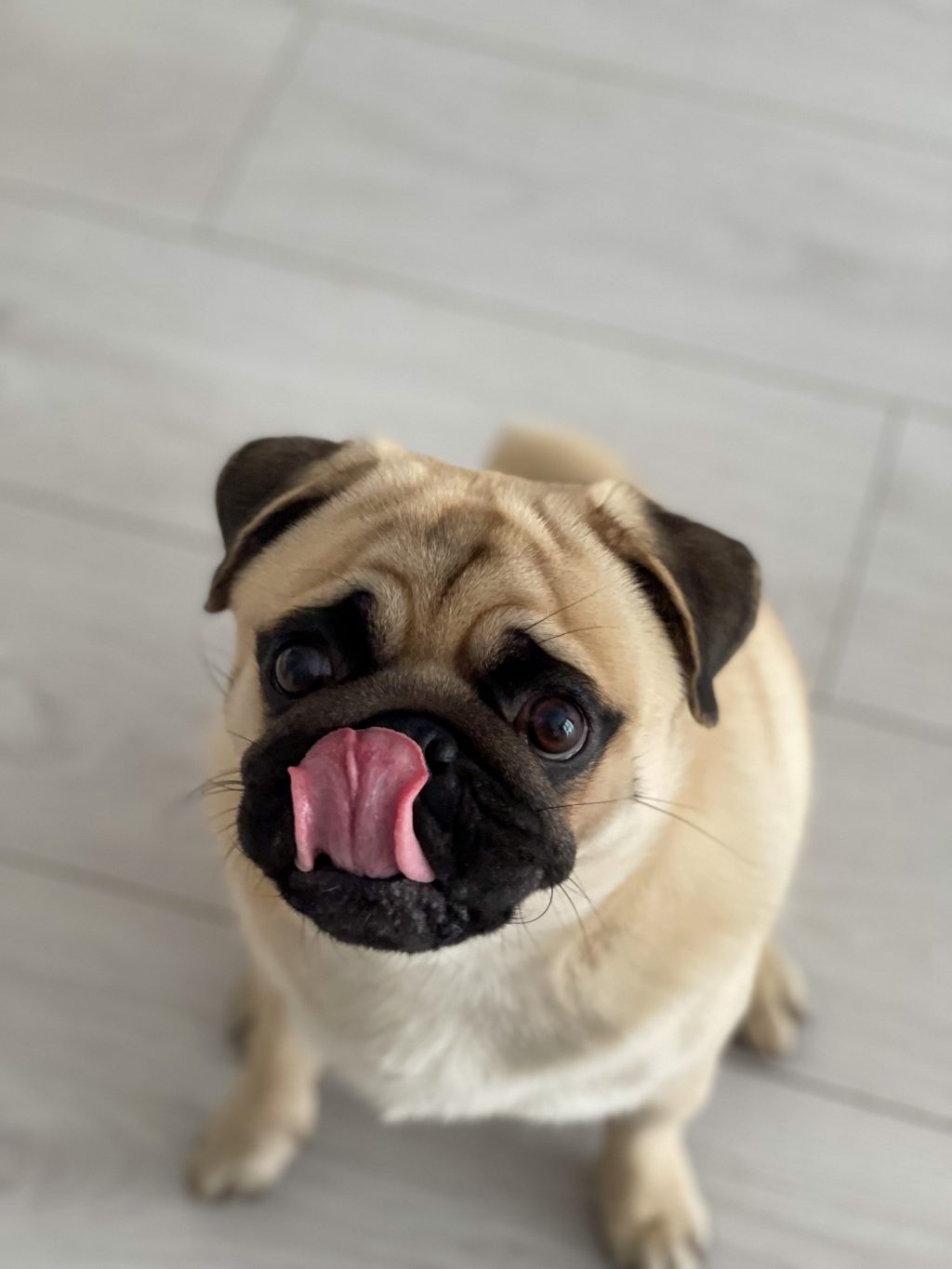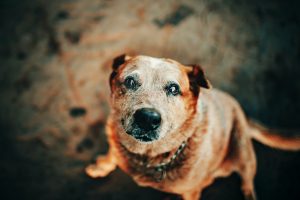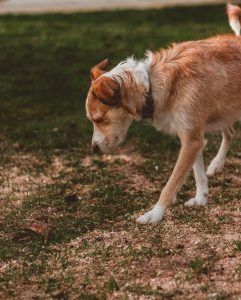
Posts by:
Dr. Mike Paul, DVM
Dog Diseases & Conditions A-Z
Dogs obviously cannot verbalize how they are feeling to us beyond perhaps a bit of whining or barking, and that’s pretty non-specific and really difficult to interpret. If you have a dog that licks a lot, you might be left wondering why.
There are situations where/what your dog is licking can give you a clue that something localized and specific is bothering him. If he is licking between his toes, for instance, it would be logical to check that area to see if there is a burr, a splinter or a sore that he is worrying. If he is licking his tail, or the base of his rump, you might consider a flea problem or an anal gland irritation. In addition, sometimes your dog licks your face in greeting or licks your arms just because.
But, what does it mean if you don’t see any logical reason for your dog to be licking and/or he is persistently licking – either himself or inanimate objects floors, carpets, toys or seemingly nothing at all?
Here are some of the reasons for dog licking:
1. Something hurts
This is not always something obvious, like the burr between his toes. It can be because of inflammation or infection in the skin, arthritis pain in a joint, or even a tingling or numb sensation for a nerve problem.
2. Nausea
If you think about it, when your stomach is upset you tend to get a bad taste in your mouth or you produce a bit of excess saliva that can make you swallow or lick your lips. The same is true for your dog, in which case any underlying disorder that produces nausea could cause your dog to lick a lot.
3. Hunger or dehydration
Being hungry or having a dry mouth could result in increased licking.
4. Dental disease, oral lesion or foreign object
Anything painful or abnormal in your dog’s mouth could make him lick.
5. Neurologic problems
When dogs seizure, for instance, they don’t always have full-blown, whole body, grand mal seizures. Sometimes seizures can be very localized twitches. Luckily, we don’t see a lot of dogs with canine distemper virus infections anymore; but when dogs are infected, they can develop symptoms commonly (and aptly) called “chewing gum fits.”
6. Cognitive dysfunction
Older dogs that develop dementia can present for excessive licking.
7. Obsessive compulsive disorder
It is not uncommon for dogs to develop excessive licking (even to the point of producing physical trauma to their skin – i.e. lick granuloma lesions). This can occur for a myriad of psychological reasons:
- Stress
- Anxiety
- Separation
- Boredom
- Etc…
How do you know what’s making your dog lick?
As you can imagine, this may not be an easy diagnosis. However, over time, a behavior that might have been transient could become habitual and thus much harder to stop. That means that you should attempt to determine the cause as soon as the problem becomes apparent.
Your veterinarian will want to get a very thorough history of the problem and may ask questions such as:
- When did it start?
- When does it happen?
- How long does it go on?
- Can you easily distract/stop the behavior?
- If you stop it, does he go right back to licking?
- Can you determine if the dog engages in the behavior when no one is there to see it by videotaping your dog when he is left alone?
You will also want to be sure to mention any other clinical or behavioral changes you have noticed in your dog, in case they are related – from personality or activity changes to changes in diet, appetite or water intake. Finally, be sure to think about whether anything has changed in your dog’s environment that might be upsetting for him.
- Did someone move away?
- Did someone move back?
- Is there construction going on next door?
Your veterinarian will then likely do a complete workup to rule out the physical/metabolic reasons for excessive licking. A complete physical examination and laboratory testing can rule out those causes that can be identified.
How do you stop the dog licking?
Obviously, if an underlying medical disorder is found, specific treatment will be geared to address that issue. If stress, boredom or something environmental is the presumed cause then your veterinarian will talk with you about ways to decrease your dog’s anxiety and/or to increase his comfort/happiness. Behavioral modification or the administration of mood enhancing medications may also be suggested.
Most importantly, you need to remember that excessive licking can be an extremely complex and frustrating problem to resolve. You may even need to seek the assistance of a veterinarian specifically trained in animal behavior. Either way, you and your veterinarian need to be partners in finding a diagnosis, creating a plan, and then taking the time to patiently carry that plan through.





